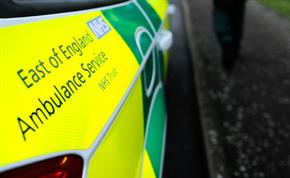
Earlier this year, the Care Quality Commission (CQC) published a report on the transition of children to adult health services, called ‘from the pond into the sea’.
The report found that there is a failure to prepare, support, inform and educate young people, their families and carers about the changes that will occur as part of adolescence. This includes capacity and consent issues, advocacy and adult service configuration. It also found a lack of support and recognition for carers, many of whom continue to care for a young adult without the familiar long-term relationships they had with school and children’s services.
In England, it is estimated that there are more than 40,000 children and young people (aged 0-18) living with a life-threatening illness. The life-limiting or life-threatening category of illnesses includes more than 300 different conditions.
The report states:
‘Young people face plenty of challenges when preparing for adult life. For the 40,000 children and young people with complex physical health needs, there are many additional hurdles. In many cases, the health needs of these young people will have been met by the same people who have looked after them for as long as they can remember. However, one of the changes as they reach adulthood is the transfer to an adult environment where they may need to consult several different health teams, therapy teams, and adult social care services.’
Director of Clinical Quality Tracy Nicholls said: “This report has given an insight into how difficult it can be for young patients and shone a spotlight into an otherwise dark corner of the NHS. If you are attending a young patient, please be aware of the challenges that they may be facing in the wider health service. We can help by remembering the importance of good communication with both the patient and their carer and involving them in every decision we make.”
The report also covers how admissions to hospital can be “a fraught process”:
‘Families told us that, as children, they could be admitted directly to a familiar paediatric ward, bypassing accident and emergency (A&E) units. Admission through A&E often causes problems for young people and families. Their treatment can be delayed, as staff are unfamiliar with some of the complex needs and rare conditions as well as the guidelines to treat them.
Some parents told us about poor experiences in A&E with long waiting times because teams were trying to decide where to treat young adults with complex needs. Sometimes parents witnessed disagreements in A&E between adult and children’s wards, and even with intensive care units, about the best place for care to be provided.’
To read the full report, please visit the CQC website.
Published 9th November 2014